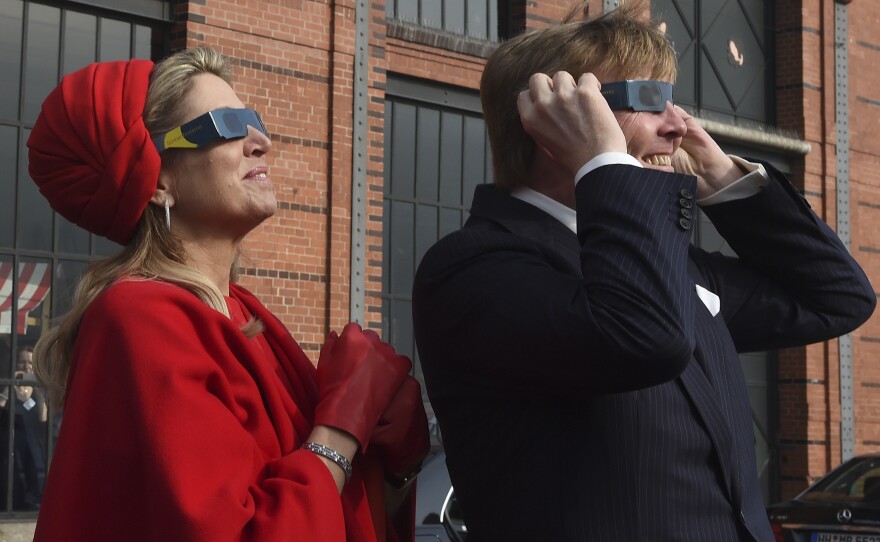People throughout Europe, as well as parts of the Middle East, Russia, Africa, Asia and South America, got a stunning view of a partial solar eclipse Friday. A very few lucky ones at sea and in the high Arctic caught a glimpse of the same event as a total eclipse, as the moon passed in front of the sun.
Sky and Telescope magazine wrote earlier this month:
"Although the path of totality is quite wide — maxing at 462 km (287 miles) — this total solar eclipse suffers from two important disadvantages: lack of land in the path and poor weather prospects.
"First landfall of the umbra occurs in the Faroe Islands, a small archipelago of 18 surprisingly green exposures situated northwest of Scotland and halfway between Iceland and Norway."
The New York Times says: "clouds covered the sky over much of Northern Europe, including the Faroe Islands, one of the few places where the total eclipse was expected to be visible. Some places such as Berlin were lucky enough to get a view of the spectacle under clear skies."
As an aside, Reuters reports that several countries in Europe "claimed success on Friday in managing the unprecedented disruption to solar power from [the] 2-1/2-hour eclipse that brought sudden, massive drops in supply."
The news agency says:
"Germany, Europe's biggest economy, at the heart of the event, boasts the world's biggest solar-powered installations, which last year supplied 6 percent of national power requirements.
"The initial 13 gigawatts (GW) drop in Germany was less than operators had feared and they were able to draw on alternative power sources including coal, gas, biogas and hydroelectric energy pumped from storage."
For our North American readers who are feeling left out, your opportunity to view a total solar eclipse comes on Aug. 21, 2017.
Copyright 2021 NPR. To see more, visit https://www.npr.org.










